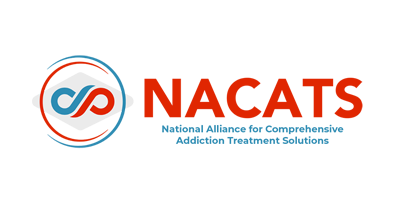
If you’re recovering from a substance use disorder, regular drug screens may be a reality for you. If you’re looking for a new job or if your current job requires drug testing, this can be worrisome when you’re recovering. After all, medications like Suboxone® (buprenorphine) are prescribed to treat addiction, but aren’t they still considered a “drug”? Does Suboxone® (buprenorphine) show up on a drug test? And if so, will your employer (or future employer) penalize you for it?
At ReVIDA® Recovery, we don’t want anything to get in the way of your goals – especially when you’re on your healing journey. Let’s talk about what can happen if your prescription medication shows up on a drug test, and what to do when it does.
Table of Contents
Does Suboxone Show Up on a Drug Test
The short answer is that Suboxone® (buprenorphine) doesn’t show up on common drug tests the way other opioids do. Most employers are looking for painkillers or illicit opioids like heroin, and they don’t commonly test for something like Suboxone® (buprenorphine). However, there are exceptions to this, and if someone wants to find out whether or not you’re on Suboxone® (buprenorphine), they can specifically test for it.
What Types of Drug Tests Might Show Suboxone?
There are various types of drug panels that employers or clinicians might order. The person who is requesting your test is typically in charge of what kind of test you’ll be taking. The following are some of the most commonly requested tests:
The Five-Panel Drug Test
The five-panel drug screening is considered the “standard” for employee drug testing because it’s incredibly cost-effective and simple. Additionally, it tests for drugs that are commonly used illegally or drugs that impair brain function and behaviors. Essentially, a five-panel drug test looks for drugs that could hinder your ability to function in a professional environment.
A five-panel drug test looks for:
- Opiates (morphine, heroin, codeine)
- Marijuana
- Amphetamines
- PCP
- Cocaine
The Seven-Panel Drug Test
The seven-panel test goes a little deeper by testing for two additional drugs/medications. These types of tests are given if someone is worried about you misusing prescription medications. Employers who run companies where you need to operate heavy machinery use seven-panel tests frequently because they want to make sure their employees are alert.
Here’s the full list of what seven-panel tests look for:
- Opiates
- Marijuana
- Amphetamines
- PCP
- Cocaine
- Barbiturates (Phenobarbital®, Primidone®, Secobarbital®)
- Benzodiazepines
The Ten-Panel Drug Test
Ten-panel tests are utilized mainly for those who are on probation for drug-related offenses. These tests will also be requested by employers hiring in law enforcement.
Here are the drugs that ten-panel tests look for:
- Opiates
- Marijuana
- Amphetamines
- Cocaine
- Barbiturates
- Benzodiazepines
- PCP
- Quaaludes
- Methadone
- Propoxyphene
If you’re in recovery and you’ve been prescribed methadone, the ten-panel drug test could be a concern for you. Keep in mind that you can ask what type of drug test you’ll be taking ahead of time. You can also inform your employer about your recovery so they won’t be surprised if something like methadone shows up on your test.
The Twelve-Panel Drug Test
The twelve-panel test is the only one that looks for Suboxone® (buprenorphine).
It is used to test for any kind of controlled substance, which means all of the drugs previously stated along with:
- Suboxone® (buprenorphine)
- Oxycodone®
- Any similar drugs or opioids
How Long Does Suboxone® (Buprenorphine) Stay in the System?
If you’re concerned about an employer finding out about your Suboxone® (buprenorphine) prescription, you may be wondering how long it stays in the body. Unfortunately, Suboxone® (buprenorphine) stays in the system longer than other opioids. 48 hours after your last dose, 50% of the Suboxone® (buprenorphine) is still in your system. It takes almost a week for Suboxone® (buprenorphine) to leave your body, and it can show up on standard drug panels for up to 2 weeks. The health of your liver also plays a role in this timeframe. If you have a normal, functioning liver, Suboxone® (buprenorphine) can leave the body in as little as 5 days. This medication can also show up on hair follicle drug tests for up to 3 months after the last dose.
Does the Amount of Suboxone® (Buprenorphine) You Take Matter When It Comes to Drug Tests?
Those who have been taking Suboxone® (buprenorphine) regularly and for a prolonged period may experience longer elimination periods because it has built up in the body. That means it can still be detected via standard drug tests for many weeks after the last dose.
Is It a Good Idea to Notify Your Employer That You Are Taking Suboxone® (Buprenorphine)?
The Americans with Disabilities Act protects people who aren’t currently using illicit drugs but are taking prescription medications during recovery. That means that by law, your employer and/or the lab used should ask you about any medications you’re taking that could create a positive result. When you mention Suboxone® (buprenorphine) and provide proof of your prescription, the lab should be able to certify the test as “negative”.
You do not need to go into detail about your addiction, but there are caveats to this. For example, your employer may ask you if your history of addiction will inhibit your ability to work. Being honest is always the best way to go about this. Many people work, raise families, and live healthy lives while taking Suboxone® (buprenorphine). Your recovery is not a deficit, it’s a strength. If you are feeling strong, healthy, and ready to work – make sure your employer knows that.
Using Suboxone® (Buprenorphine) to Treat Opioid Use Disorder
Our medically supervised Suboxone® program helps quiet the mind and prepare your body for the treatment of long-term opiate addiction. Suboxone® (buprenorphine) is one of the most effective and proven therapies to reduce the cravings for opioids. Unlike Methadone, this treatment can be prescribed in a doctor’s office and permits our staff to prepare you for the important work of one-on-one therapy and learning strategies for daily recovery. When the time is right, you can talk to your physician about slowly weaning off of Suboxone® (buprenorphine) to avoid any potential withdrawals.
ReVIDA® Recovery also offers these additional treatment options for opioid use disorder:
Structured Outpatient Treatment
The ReVIDA® outpatient program gives individuals the options for flexibility while offering the structure needed for lasting recovery. Our evidence-based scientific treatment includes individual and group therapy, education classes, and 12-step meetings. Also, we help connect you to resources and community partners who have joined together as a part of your extended support team during treatment.
Medication-Assisted Treatment (MAT)
Discontinuing opioid use can be very difficult – especially alone. Choosing a MAT program means choosing support. We’ll work to decrease any withdrawal symptoms and make your recovery as comfortable as possible. Our MAT program is supervised by physicians, licensed therapists, certified counselors, care coordinators, and peer recovery specialists that oversee your progress and health – every step of the way.
Counseling and Group Therapy
Study after study shows that individual and group therapy are critical components of treatment as patients navigate the road to long-term recovery. The longer a person stays engaged in treatment, the better their chances are for long-term recovery. From the moment you begin treatment, you will discover that we offer a safe and supportive place to talk and learn the necessary skills that will support your growth and a healthy lifestyle. Our behavioral healthcare team is composed of licensed therapists, certified counselors, care coordinators, and peer recovery specialists who are ready to guide and support you along the way.
To learn more about treatment for opioid use disorder at ReVIDA® Recovery, call us today at 423-631-0432 so we can help you reclaim your life!
FAQs
Which tests are prone to showing Suboxone as a positive result?
A twelve-panel drug test will look for all controlled substances, including Suboxone® (buprenorphine), but it isn’t commonly used.
Do employers test for Suboxone?
Usually, employers will not test for Suboxone® (buprenorphine), but you can ask what test you’ll be taking ahead of time. If you provide proof of your prescription, a positive test result for Suboxone® (buprenorphine) should not be a problem.
How Long Does Suboxone Stay in Your System?
It takes almost a week for Suboxone® (buprenorphine) to leave your body, and it can show up on standard drug panels for up to 2 weeks. The health of your liver also plays a role in this timeframe. If you have a normal, functioning liver, Suboxone® (buprenorphine) can leave the body in as little as 5 days. This medication can also show up on hair follicle drug tests for up to 3 months after the last dose.










